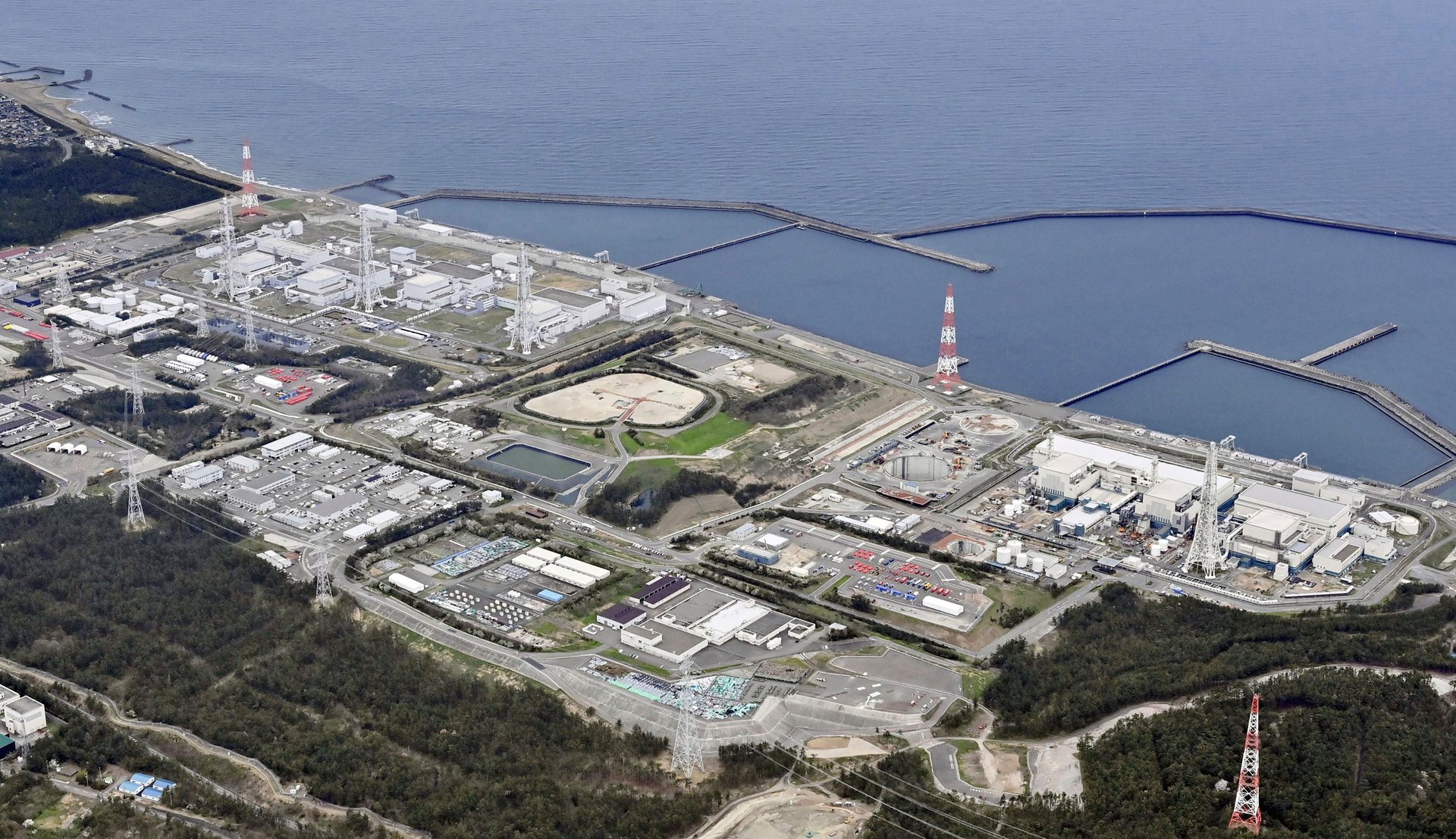TEPCO's operational ban is lifted, putting it one step closer to restarting reactors in Niigata
Japanese nuclear safety regulators are lifting an operational ban imposed on a plant owned by Tokyo Electric Power Company Holdings, the operator behind the Fukushima disaster

TOKYO (AP) — Japanese nuclear safety regulators lifted an operational ban Wednesday imposed on a nuclear plant owned by Tokyo Electric Power Company Holdings, the operator behind the Fukushima plant that ended in disaster, allowing the company to resume preparations for restarting the Kashiwazaki-Kariwa plant after more than 10 years.
Suggested Reading
At its weekly meeting, the Nuclear Regulation Authority formally lifted the more than two-year ban imposed on the TEPCO's Kashiwazaki-Kariwa plant over its lax safety measures at the site, saying a series of inspections and meetings with company officials has shown sufficient improvement. The decision removes an order that prohibited TEPCO from transporting new fuel into the plant or placing it into reactors, a necessary step for restarting Kashiwazaki-Kariwa's reactors.
Related Content
The plant on Japan's northern coast of Niigata is TEPCO's only workable nuclear power plant since the March 2011 earthquake and tsunami destroyed its Fukushima Daiichi plant and caused Fukushima Daini plant to cease operations. For the company now burdened with the growing cost of decommissioning the Fukushima Daiichi plant and compensating disaster-hit residents, restarting the Kashiwazaki-Kariwa reactors soon is key to stabilizing its business.
TEPCO President Tomoaki Kobayakawa told reporters Wednesday that it was too early to comment on the prospect for the restart. He said the company will provide its safety and security measures to gain understanding from the local residents, who must approve a restart.
The NRA slapped an unprecedented ban on the operator in April 2021 after revelations of a series of sloppy anti-terrorism measures at TEPCO's Kashiwazaki-Kariwa plant, the world's largest nuclear power complex housing seven reactors.
The Kashiwazaki-Kariwa plant was partially damaged in a 2007 earthquake, causing safety concerns and distrust among local municipalities. The March 2011 disaster caused stoppages of all 54 reactors Japan used to have before the Fukushima disaster, and prompted utility operators to shut many of them down due to additional safety costs, bringing the number of usable reactors to 33 today. Twelve reactors have been restarted under tougher safety standards, and the government wants to bring more than 20 others back online — a goal widely considered overly ambitious.
TEPCO was making final preparations to restart the Kashiwazaki-Kariwa plant’s No. 6 and No. 7 reactors after regulators granted safety approvals for them in 2017. But in 2021, regulators gave the plant’s nuclear security a “red” rating, the lowest given to any operator, resulting in the operational ban.
The case raised questions about whether TEPCO learned any lessons from the 2011 Fukushima crisis, which was largely attributed to the utility’s lack of concern about safety.
NRA Chair Shinsuke Yamanaka told Wednesday’s meeting that the lifting of the restrictions is just the beginning, and TEPCO is still required to keep improving its safety precautions.
“TEPCO is a unique company; in a way it had caused the accident," Yamanaka said. “It is the operator's responsibility to keep improving, and our task is to watch if improvement is adequately carried out." He said he hoped TEPCO will be an open and transparent company capable of sufficient communication across the workplace, while also accomplishing Fukushima Daiichi's cleanup.
Before TEPCO can restart the reactors, it needs the consent of nearby residents. Prior to the NRA decision Wednesday, Niigata Gov. Hideyo Hanazumi told reporters that the will of the voters he represents must be taken into consideration.
The Japanese government recently began a push to restart as many reactors as possible to maximize nuclear energy and meet decarbonization targets. Prime Minister Fumio Kishida’s government has reversed Japan’s nuclear energy phaseout plan, instead looking to use atomic power as key energy supply accounting to more than one-fifth of the country’s energy supply.
A restart of Kashiwazaki-Kariwa plant, along with attempts by other utility operators to resume their reactors, would “contribute to Japan's stable energy supply and its pursuit of carbon neutrality,” especially when the energy-scarce country is hit by rising energy costs amid Russia's war on Ukraine, Kobayakawa said. “Of course, safety is the prerequisite.”